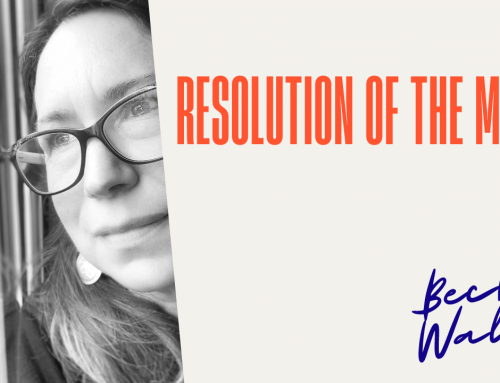
According to one of his latest blog’s he has been finding himself becoming more and more intuitive. Many of us have also been feeling like this, as the energy of the earth is quickening our intuition is starting to feel super charged. Since I cut gluten out of my diet, mine has gone off the scale. I’m finding myself wanting to jump in over what my clients are telling me as my insights are bursting out of me. I find I have to cut one hour appointments down to 30mins as the answers are just so unbelievably clear, and as ever I talk too fast!
So David’s not the only one finding this change. Like me David Hamilton wants to know how things work. As he is a bit of an expert in how the mind works, here is what his blog had to say on intuition:

On a really obvious level, most people would agree that we tend to be more intuitive when we are in a good mood. Psychology professor, Barbara Fredrickson’s ‘Broaden and Build’ theory suggests that positive emotion increases creativity and that it also makes us more alert to opportunities that present themselves.
In this creative, alert state we pick up more of the visual cues around us. If you have a goal, and you are creatively alert in this way, you are more likely to spot signs and pick up snippets of conversations that can help you in the pursuit of your goal.
2) Mirror Neurons
The second route of intuition is present when we are in someone’s company. The human brain is highly adept at reading emotions. It’s also highly adept at telling when someone isn’t being truthful. This is facilitated by an interconnected network of cells in the brain known as mirror neurons.
When a person shows emotion it is written all over their face, as they say. Happiness can be recognised as smiling, anger or sadness with a frown. These displays of emotion move particular muscles. Happiness flexes the zygomaticus major muscle (it pulls your lips into a smile) and theorbicularis oculi muscle (at the sides of the eyes), while anger flexes the corrugator supercilli(between your eyebrows). This is where mirror neurons come in.
The MNS (mirror neuron system) mirrors the muscle movements we see in others. Being with a happy person is a sure fire way to get stimulation of your happy muscles. So how does this relate to intuition? Well, if a person is pretending they are happy but actually they’re sad inside, your mirror neuron system will mirror not only their (pretend) smiles but also the subtle facial muscle movements that reflect how they really feel.
When a person says an untruth, flashes of emotion appear on their face but they might only last for a few milliseconds, too fast for the human eye to detect. But not too fast for your MNS though! It mirrors the expression and feeds back into the emotional circuits in your brain, causing you to gain a subtle (intuitive) feeling of how they are feeling. When you sense someone is sad, even though they are acting happy, you might be getting an accurate picture of how they really feel.
Some people are very sensitive in this way and others are less so, which isn’t surprising as we all have innate differences in skills.
Lie detector tests work on the same premise. When a person says an untruth their nervous system shows subtle levels of stress. This can be detected using devices that measure skin conductance, which changes with micro amounts of sweating.
3) Entangled Minds
The third route of intuition is the one that might invite a little scepticism from people but I’d suggest that it is a very real mechanism, perhaps predominantly masked by the other two.
A body of scientific evidence suggests that we are connected through some levels of our minds. One of my favourite pieces was where researchers at Bastyr University in Seattle worked with ‘emotionally bonded couples’ – couples who shared a strong emotional bond.
One was placed inside an MRI scanner while the other was in a separate room. When the one in the room was startled with a visual stimulus, the MRI picked up a ‘flash’ in the visual cortex of the partner in the scanner. Similar experiments with EEG have suggested that the ‘interconnectedness’ is stronger between people who share a strong emotional bond, which correlates with a lot of people’s personal experience. Many people feel connected to loved ones no matter how far apart they are, and would agree that they get a sense when something in wrong.
This kind of thing is even apparent with some animals. In his compelling book, ‘Dogs that Know When Their Owners Are Coming Home’, Rupert Sheldrake describes experiments where he had sent a text to a dog owner and asked her or him to now make a decision to leave the office and head home. At the instant they made their decision, a video camera set up in the home showed their dog becoming excited and moving to the window.
This kind of evidence suggests that there is some form of communication that takes place from mind-to-mind. As well as emotional connection being a factor, it’s likely that the effect is more pronounced under some conditions than others and also that some people are naturally more ‘in tune’, so to speak, than others.
Intuition, regardless of what path, is likely wired in us. It would have undoubtedly served an evolutionary advantage to our ancestors if they had a hunch that danger was near. Acting on that hunch would save their lives and thus increase the likelihood that they would pass their genes onto the next generation. In this way, nature would ‘select’ genes that are linked with intuition.
So maybe the lesson in this is that it might be a good idea to trust our hunches, but maybe only if we’re in a good mood. And of course, we also need to be a little discerning. I guess it’s all about balance. – David Hamilton
David has given some great evidence here for something I discovered intuitively. There are two kinds of intuition, one which is known as the ‘gut instinct’ works with our ego and fear. The other works from our heart and our love, for that David is right; it helps if we are happy. Sadly we often need intuition most when we are worried. But learning to use it when you’re in a good space means you know when you are getting intuitive insight. One of the many reasons I use a lot of humour in my groups, classes, talks and consultations. Life is always better when you can be joyful. One thing I’ll always remember about David when he first walked into the studio at LBC, about from him being REALLY TALL is the bright light that shines out of his eyes, with a little sparkle of humour sitting right behind.
For more about David Hamilton’s work and available books see: David Hamilton





